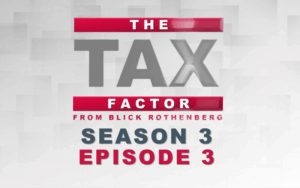All companies have an obligation to inform HM Revenue & Customs (HMRC), the UK’s tax, payments and customs authority, about transactions in Employment Related Securities (ERS) that relate to their employees who are undertaking duties in the UK

Employment Related Securities Reporting
Employment Related Securities Reporting
Reportable events
Most security transactions involving UK employees and directors will be reportable.
Therefore, as well as company incentive plans, the issue of shares or options to UK employees and directors (including future or past employees) needs to be reflected in an ERS return.
Even where an employee has paid market value for the securities or the securities have a modest value, the acquisition is almost certainly reportable.
There are very few exceptions. Apart from the issue of shares, other transactions in securities, or the right to acquire securities, are reportable.
These events include and are not limited to:
- The grant and exercise of options
- The award of restricted stock units (RSUs)
- Changes to the rights of securities
- Acquisitions for more than market value e.g. under good leaver provisions if an employee receives the amount paid for shares, and their value has decreased
- Share or option cancellations in exchange for consideration
Information required
A significant amount of information may be required depending on the type of transaction being reported.
This is not an exhaustive list but for an issue of securities or exercise of options the return must include details of:
- The company issuing the shares, including its address
- The names and National Insurance numbers of the employees
- The number and type of securities awarded
- Any restrictions that could affect the market value of the shares
- Whether the employee has agreed to be taxed as though restrictions did not apply
- The market value of each security and amounts which employees have paid for the shares
- Whether payroll taxes have been applied (some share acquisitions, such as listed shares, are subject to Pay as you Earn (PAYE) and National Insurance Contributions (NICs)

The reporting of securities which are subject to PAYE and NICs and are ‘net settled’ is more onerous as HMRC have recently clarified their view on the reporting requirements.
If PAYE and NICs are payable in respect of ERS, and the employer pays these amounts on behalf of the employee, additional employee taxes may become payable if the employee does not reimburse the the employer within 90 days of the end of the tax year i.e. 4 July 2020.
Employees ceasing to be employed
If an employee leaves a company, the securities cease to be employment related securities seven years after leaving.
Therefore, if an employee leaves holding options which are exercised within seven years of leaving, there may still be a requirement to report an exercise and account for payroll taxes, depending on the type of securities acquired.
Overseas companies
Companies parented overseas, or overseas companies with employees performing duties in the UK, will have reporting requirements for ERS in relation to those employees.
For employees who have moved between jurisdictions, there are more complex reporting requirements if transactions take place in respect of options, shares, and/or RSUs.
This is also the case if the employee has moved from the UK or been seconded overseas.
Registration for ERS online
If you are filing for the first time, you will need to register for the online service.
This is a two-stage process and requires the company (and not just its agent who handles its tax affairs) to be registered for HMRC online services.
The ERS service is then set up within the HMRC PAYE for Employers portal.
If only your payroll provider has access to your PAYE records this will not be sufficient as only the company’s own access can be used to perform the registration functions, although returns can be submitted through the agent’s service.
Setting up access can take several weeks, and with the current COVID-19 lock down, it is likely to take longer than normal.
Therefore, we recommend businesses register as soon as possible to avoid missing the filing deadline.
No securities transactions during the tax year
If you have filed a return in the past, an annual ‘nil return’ is still required even if there are no reportable events during the tax year.
If there will be no further reportable transactions during subsequent tax years, the scheme should be closed online so that the filing obligations are not ongoing.
Next Steps – How we can help
If you think you may have a reporting requirement, our team would be delighted to discuss this with you.
We can also provide assistance with completing the forms and filing these with HMRC.
Please speak to your usual Blick Rothenberg contact or message Matt usimng the form below and he’ll get in touch.
Contact Matt













